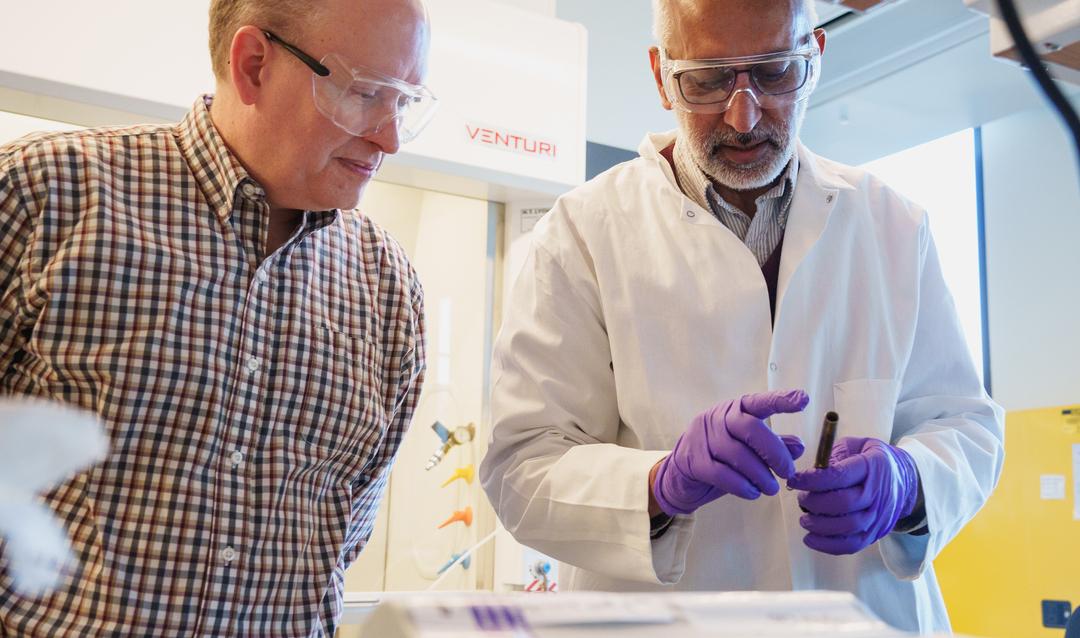The National Science Foundation has awarded a team of interdisciplinary researchers, led by Anand Jagota, vice provost for research at Lehigh, a four-year, $2 million grant to study DNA-wrapped carbon nanotubes as nanosensors that detect molecules such as biomarkers for cancer, or possibly other diseases.
Co-principal investigators on the project are Brian Davison, professor and chair of the Department of Computer Science and Engineering, and Daniel Heller, associate member and head, Cancer Nanotechnology Laboratory, Memorial Sloan Kettering Cancer Center. Also part of the leadership team is Ming Zheng of the National Institute of Standards and Technology.
In biosensing, researchers often look for the presence or concentration of a certain molecule or protein, a biomarker, to determine whether a patient is diagnosed with an illness or disease, says Jagota, professor of bioengineering and chemical and biomolecular engineering.
Early detection of cancer, he says, requires specific detection of low concentrations of biomarkers in biofluids. Researchers have found that single-walled carbon nanotubes—“basically one sheet of a layer of carbon atoms folded on itself”—wrapped with a DNA molecule will fluoresce differently in the presence of different biomarkers. Detecting whether certain biomarkers are in the blood can determine if a person has cancer, which is the initial focus of the project. In principle, Jagota says, the process could eventually be used to detect any of a number of diseases.
To determine whether a patient has cancer, a bodily fluid sample is taken, exposed in a vial to several types of DNA–wrapped carbon nanotubes, and the fluorescence of each nanotube is recorded. One of the goals of the project, DNA-Nanocarbon Hybrid Materials for Perception-Based, Analyte-Agnostic Sensing, is to have an automated disease detection system into which data about a bodily fluid can be inputted.
The NSF project focuses on how the system works and how it can be improved. Some of the fundamental questions researchers are looking to answer, according to Jagota, include, “Is there a rationale for why the nanotubes hybridized with DNA can detect diseases?” and “What is the mechanism by which it detects?”
Read the full story at Lehigh News.

